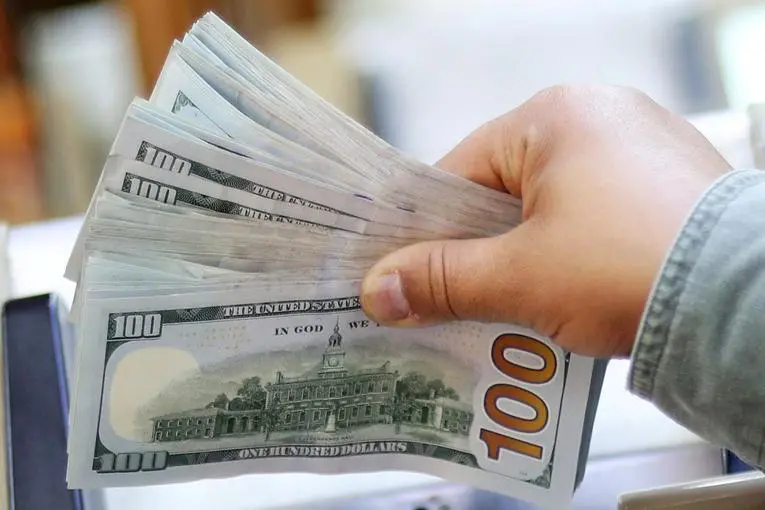PHOTO
TOKYO: The dollar fell against a broad range of currencies on Monday after the U.S. Federal Reserve made another surprise interest rate cut and major central banks took steps to relieve a shortage of dollars and provide extra liquidity.
Pressure has been building on central banks to do something to restore calm to financial markets roiled by the deepening coronavirus crisis.
The U.S. Federal Reserve cut rates to a target range of 0% to 0.25% on Sunday, U.S. time, and said it would expand its balance sheet by at least $700 billion in coming weeks.
The Bank of Japan said it will hold an emergency policy meeting on Monday at 12 noon Japan time (0300 GMT), joining a step up in the global response to the flu-like virus that has spread from China to dozens of countries and claimed more than 5,800 lives.
Five other central banks cut pricing on their swap lines to make it easier to provide dollars to their financial institutions facing stress in credit markets.
"It's a modest negative reaction for the U.S. dollar. The Fed moved a little sooner and a little more aggressive that some thought," said Ray Attrill, head of FX strategy at National Australia Bank in Sydney.
"This cannot prevent the economic fallout from social distancing," he said, referring to a method being used by many countries to try slow the spread of the virus. "That will require some fiscal spending and something from the government to make sure small companies are funded."
The dollar fell 0.6% to 106.85 yen JPY=EBS on Monday, trimming some of its losses as traders braced for the BOJ.
The greenback also fell 0.3% to $1.2330 per British pound GBP=D3 .
Against the euro EUR=EBS , the dollar slid 0.1% to $1.1104.
The dollar was little changed at 0.9516 Swiss franc CHF=EBS .
The Fed, the Bank of Canada, European Central Bank, the Bank of England, the Bank of Japan (BOJ) and Swiss National Bank all agreed to offer three-month credit in U.S. dollars on a regular basis and at a rate cheaper than usual.
The move was designed to bring down the price banks and companies pay to access U.S. dollars, which has surged in recent weeks as the coronavirus outbreak spooked investors.
The Fed had already cut interest rates by half a percentage point on March 3 at an emergency meeting, the first emergency cut since the financial crisis in 2008, but that move failed to stem market volatility.
Sunday's rate cut was likely aimed at staving off what had the potential to be another volatile week in financial markets, analysts say. However, U.S. stock futures still plunged and Asian shares fell, showing investors remain nervous. L4N2B80YP
In the onshore market, the yuan CNY=CFXS strengthened slightly to 6.9996 per dollar.
CHINA, AUSTRALIA AND NEW ZEALAND MOVES
The People's Bank of China injected 100 billion yuan ($14.28 billion) into financial institutions on Monday but left borrowing cost on its medium term loans unchanged.
The move came minutes before data was released showing China's retail sales, industrial output, and fixed-asset investment in January and February all tumbled.
The data reveal the scale of damage caused by the coronavirus and suggest other countries could be in the same situation.
Worries that travel restrictions and factory closures aimed at containing the coronavirus will cause a global recession have sent equities into a tailspin.
The recent spread of the virus in Europe and the United States has rattled investors who previously thought those regions were shielded.
The Reserve Bank of New Zealand joined the global easing race with a rate cut of 75 basis points to a record 0.25%, while the Reserve Bank of Australia (RBA) added A$5.9 billion ($3.62 billion) to the banking system through market repo operations.
The RBA said on Monday it stands ready to purchase government bonds and will announce further policy measures on Thursday. There is lingering speculation the RBA will also cut rates at some point.
The New Zealand dollar NZD=D3 fell 0.41% to $0.6032, while the Australian dollar AUD=D3 fell 0.82% o $0.6133. ($1 = 1.6300 Australian dollars) ($1 = 7.0010 Chinese yuan renminbi)
(Reporting by Stanley White; Editing by Chizu Nomiyama, Sam Holmes and Jane Wardell) ((stanley.white@tr.com; +81 (0)3 4563 2799; twitter.com/stanleywhite1 ;))





















